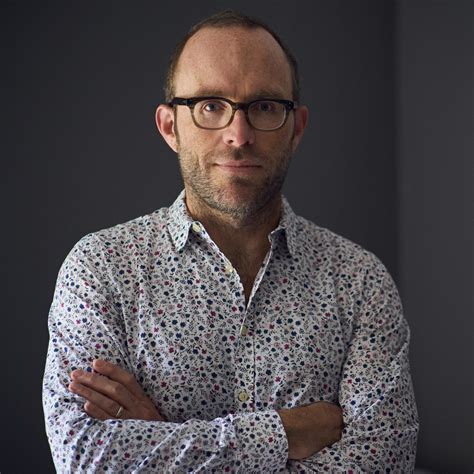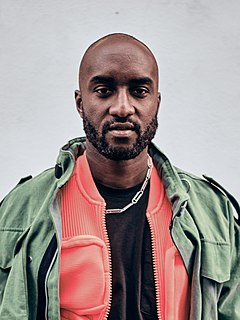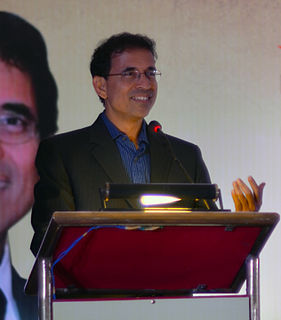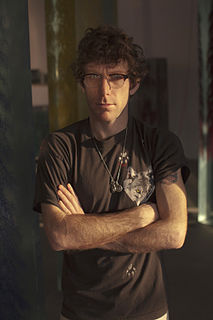A Quote by Antoine Wilson
If Murakami's novels are grand enigmas, his stories are bite-sized conundrums. (...) The great pleasure of the new story collection, Blind Willow, Sleeping Woman, is watching Murakami come at his obsessions from so many different angles. There's a panoply of strangeness between these covers (.....) This collection shows Murakami at his dynamic, organic best. As a chronicler of contemporary alienation, a writer for the Radiohead age, he shows how taut and thin our routines have become, how ill-equipped we are to contend with the forces that threaten to disrupt us.
Quote Topics
Age
Alienation
Angles
Become
Best
Between
Bite
Blind
Collection
Come
Contemporary
Contend
Conundrums
Covers
Different
Different Angles
Disrupt
Dynamic
Equipped
Forces
Grand
Great
Great Pleasure
His
How
Ill
Many
New
New Story
Novels
Obsessions
Organic
Our
Pleasure
Radiohead
Routines
Shows
Sleeping
Stories
Story
Strangeness
Thin
Threaten
Us
Watching
Willow
Woman
Writer
Related Quotes
I've got a nice collection of paintings - a Basquiat, a black-and-white Warhol that's like a Rorschach test, and I commissioned Takashi Murakami to do a ten-foot joint for me. It's almost like the explosion in Hiroshima with his famous skeleton head. There's a wall above my fireplace reserved for it.
Everything necessary to understand my grandfather lies between two stories: the story of the tiger’s wife, and the story of the deathless man. These stories run like secret rivers through all the other stories of his life – of my grandfather’s days in the army; his great love for my grandmother; the years he spent as a surgeon and a tyrant of the University. One, which I learned after his death, is the story of how my grandfather became a man; the other, which he told to me, is of how he became a child again.
David Foster Wallace was a brilliant experimentalist who I deeply admire. His ability to do formalism helped me understand how to tackle stories like "Dictionary" and "Failed Revolution." "Dictionary," in particular, functions against narrative in many ways - each of the definitions are their own mini-story or prose poem, and the collection of them adds up to create a different effect than the traditional Freytagian Pyramid story.
I will talk about Baker Mayfield. I like everything about his makeup. I like how his teammates really rally behind him. I like his eyes downfield. I like his accuracy with his deep throws. I like how he shows that fighter's spirit; when it comes time to come back, he's fighting through to come back, and I applaud those things.
How can we feel our need of His help, or our dependence on Him, or our debt to Him, or the nature of His gift to us, unless we know ourselves.... This is why many in this age (and in every age) become infidels, heretics, schismatics, disloyal despisers of the Church.... They have never had experience of His power and love, because they have never known their own weakness and need.







































